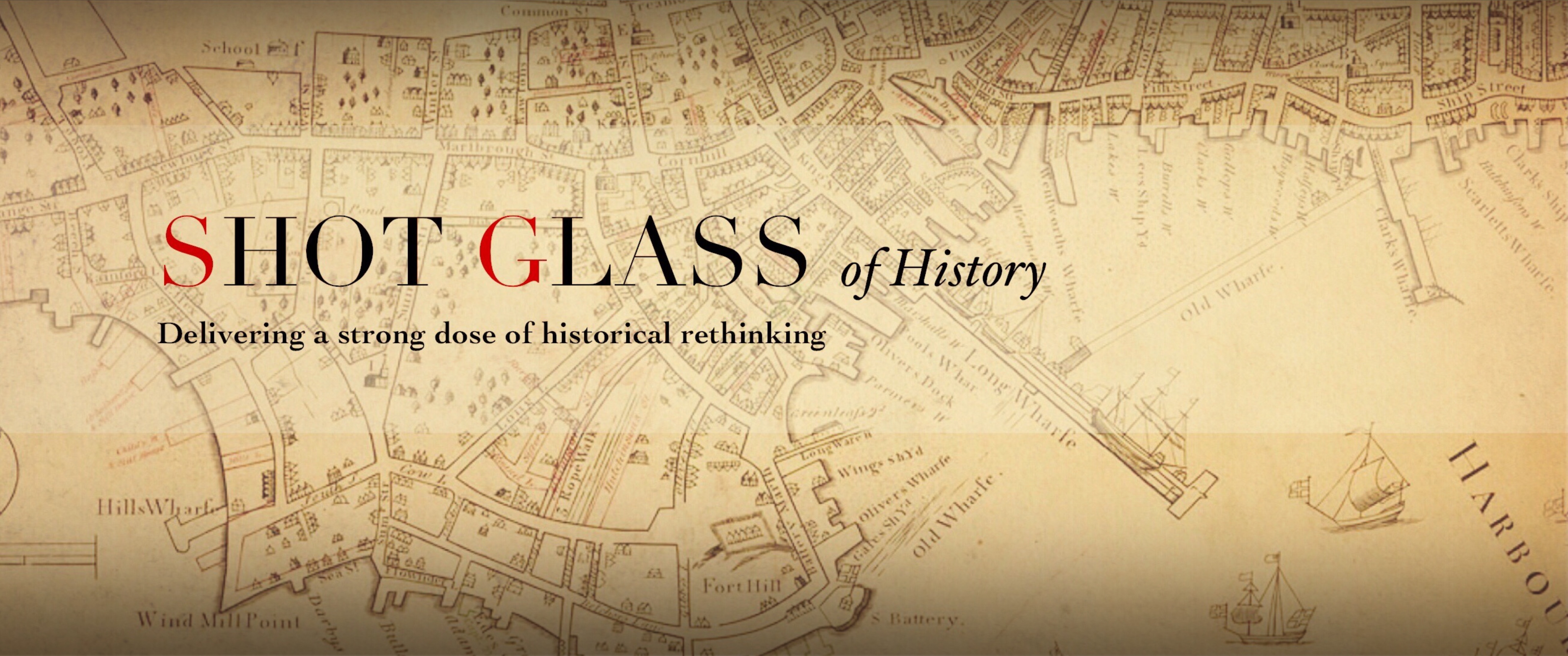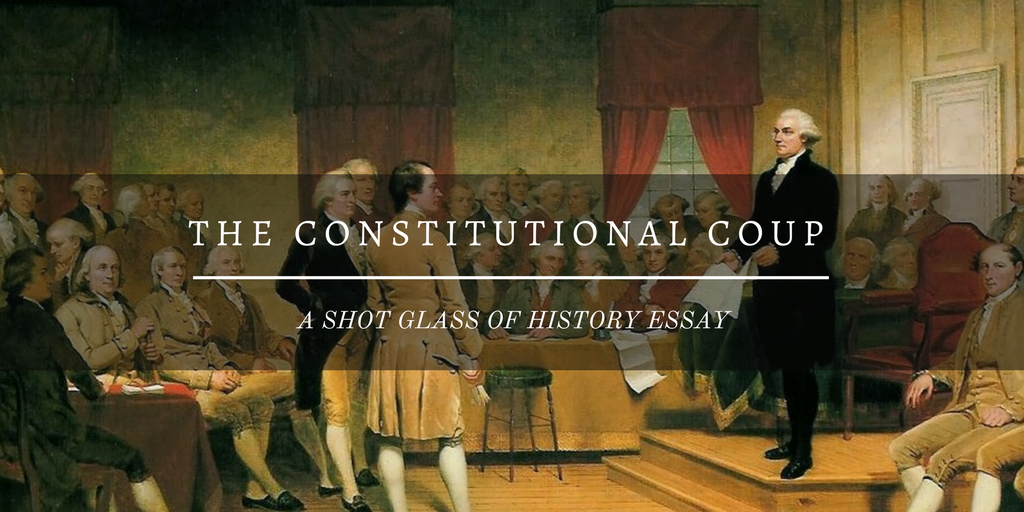When the delegates met at the Philadelphia Convention in 1787, they had been assembled by Congress and the states with the task to “correct and enlarge” the Articles of Confederation. Most people agreed that flaws in the Articles had caused tension between the states and civil unrest within them, and it was necessary to amend them. The state delegates met behind closed doors, and their discussions were not made public at the time, allowing them to freely plan without fear of general censure. And while they had been tasked with specific instructions from their governments, several of the leading delegates had secret plans to ignore these instructions and instead propose to abolish the government and replace it with a central, national one.

Edmund Randolph
Edmund Randolph of Virginia began the convention by proposing a series of resolutions to establish a new form of government over the states. He explained that attempting to reform the Articles of the Confederation with a “merely federal” government was inadequate to preserve the “common defence, security of liberty, and general welfare.” And he instead proposed replacing the confederation with a “national government” consisting of a “supreme legislative, judiciary and executive.” Gouverneur Morris of New York agreed with Randolph, explaining that while a federal government was “a mere compact resting on the good faith of the parties,” the American people, and in fact all people, required a government consisting of “one supreme power, and one only.”
However, Congress had clearly not authorized the delegates to replace the Confederation Congress with a national one, and some of the delegates were quick to point this out. The convention had been assembled by Congress “for the sole and express purpose of revising the Articles,” and two of the states had even expressly restricted their delegates to this task. Charles Cotesworth Pinckney of South Carolina went so far as to say that if they attempted anything more than this, then they were “declaring that the convention does not act under the authority of the recommendation of Congress,” and therefore “their business was at an end.”
This sentiment was echoed by several other delegates. John Lansing, Jr., of New York said he was
decidedly of opinion that the power of the Convention was restrained to amendments of a federal nature, and having for their basis the Confederacy in being. The act of Congress the tenor of the Acts of the states, the commissions produced by the several deputations all proved this. And this limitation of the power to an amendment of the Confederacy, marked the opinion of the states, that it was unnecessary and improper to go farther. He was sure that this was the case with his state. New York would never have concurred in sending deputies to the convention, if she had supposed the deliberations were to turn on a consolidation of the states, and a national government.
William Paterson of New Jersey requested that the convention read aloud the very specific set of instructions that Massachusetts had tasked its delegates with.
By this and the other credentials we see, that the basis of our present authority is founded on a revision of the articles of the present confederation, and to alter or amend them in such parts where they may appear defective. Can we on this ground form a national government? I fancy not. — Our commissions give a complexion to the business; and can we suppose that when we exceed the bounds of our duty, the people will approve our proceedings?
We are met here as the deputies of 13 independent, sovereign states, for federal purposes. Can we consolidate their sovereignty and form one nation, and annihilate the sovereignties of our states who have sent us here for other purposes?
He warned that should they exceed their commission they would “be charged by our constituents with usurpation.” He went on,
[T]he people of America were sharpsighted and not to be deceived. . . . The idea of a national government as contradistinguished from a federal one, never entered into the mind of any of them, and to the public mind we must accommodate ourselves. We have no power to go beyond the federal scheme, and if we had the people are not ripe for any other. We must follow the people; the people will not follow us.
However, Randolph disregarded these reservations, declaring that “When the salvation of the Republic was at stake, it would be treason to our trust, not to propose what we found necessary.” He explained that faced with the potential outbreak of hostility between the states and the rampant disregard for Congressional authority, the delegates were in a situation of a “peculiar nature where the ordinary cautions must be dispensed with,” and the “true question is whether we shall adhere to the federal plan, or introduce the national plan. The insufficiency of the former has been fully displayed by the trial already made.” Randolph then concluded apocalyptically that only a national government could save the American people from anarchy, and he “begged it to be considered that the present is the last moment for establishing one. After this select experiment, the people will yield to despair.”

Alexander Hamilton
Alexander Hamilton, representing New York, agreed with both Randolph’s assessment of the situation and the cure. The instructions from the states had been to establish a “good government,” and the delegates
owed it to our country, to do on this emergency whatever we should deem essential to its happiness. The states sent us here to provide for the exigences of the Union. To rely on and propose any plan not adequate to these exigences, merely because it was not clearly within our powers, would be to sacrifice the means to the end.
In Hamilton’s opinion, Congress had demonstrated that as a representative of the states it was totally inadequate to unite the people without falling prey to the local interests of the states themselves. A single, national government was essential to American success. A few days later Hamilton would make the case that,
The general power whatever be its form if it preserves itself, must swallow up the state powers. Otherwise it will be swallowed up by them. It is against all the principles of a good government to vest the requisite powers in such a body as Congress. Two sovereignties can not co-exist within the same limits. Giving powers to Congress must eventuate in a bad government or in no government.
Indeed, with their current trajectory, Hamilton believed that the Union was already dissolving or had in fact already been dissolved. But while the general populace was not yet prepared to go the full measure and do what was necessary to preserve American prosperity, Hamilton was sure that circumstances would eventually persuade them to follow a more national measure. As Madison described Hamilton’s position:
he sees evils operating in the states which must soon cure the people of their fondness for democracies — he sees that a great progress has been already made and is still going on in the public mind. He thinks therefore that the people will in time be unshackled from their prejudices; and whenever that happens, they will themselves not be satisfied at stopping where the plan of Mr. Randolph would place them, but be ready to go as far at least as he proposes.
When the convention put it to a vote, the delegates backed Hamilton and Randolph’s defense of their authority, and voted six to one to repudiate the Articles and establish a national rather than federal government. While divided state interests would eventually create a compromised constitution that neither the nationalists nor anti-nationalists liked, the strong nationalist bent evinced at the convention’s outset remained. Several of the delegates walked out of the convention, convinced that staying would be a betrayal of their state governments. But the Confederation Congress chose to not pass judgment on the convention that had just illegally chosen to replace them. When the proceedings of the convention was in fact made public, there was a large contingent of anti-nationalists who denounced the new government, and even some states that originally refused to ratify the Constitution and join the union. Strong arm tactics and political threatening from states that supported ratification soon brought the unwilling states into the nation, but sectional divide and debates over states’ rights would continue to plague the country for years to come.

